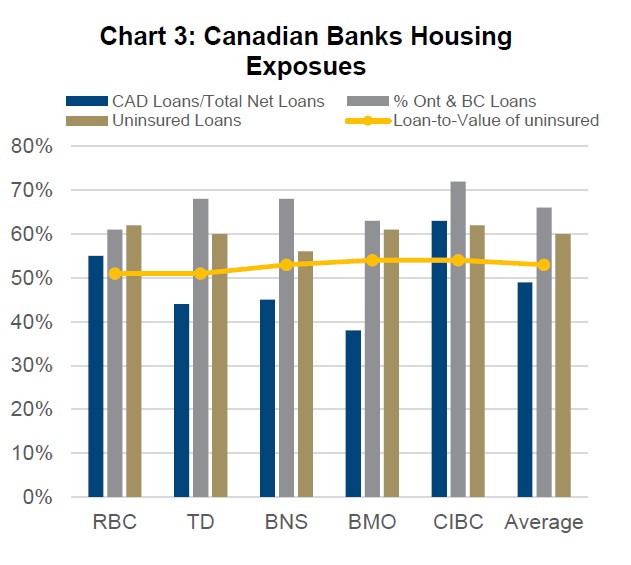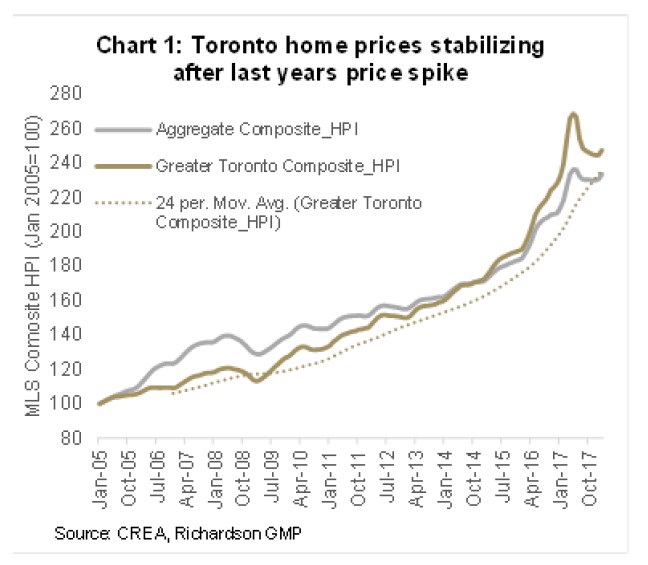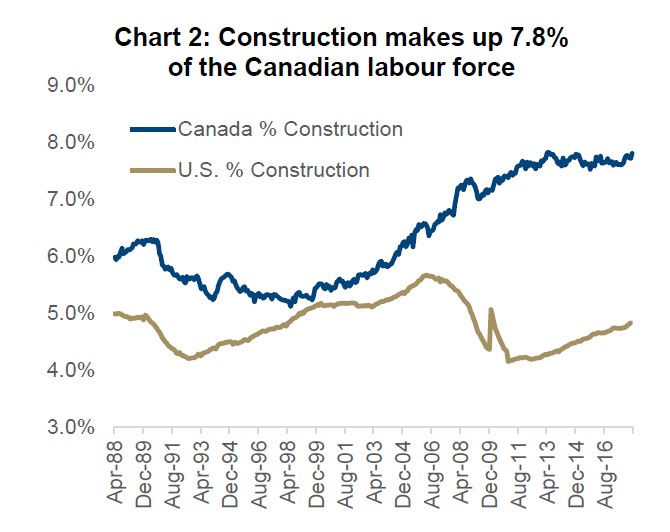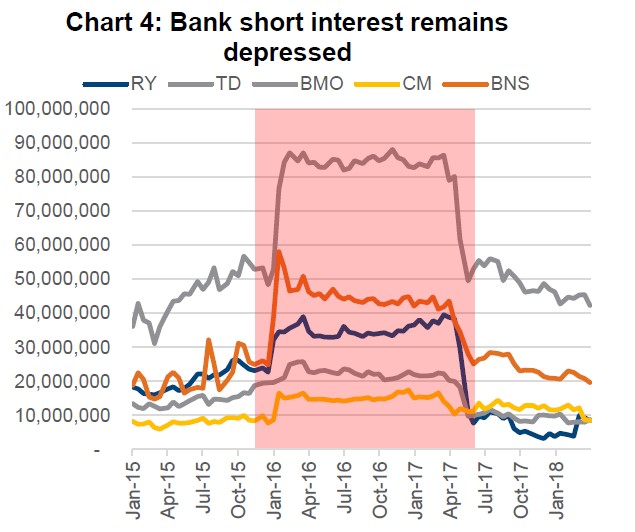Canadian houses have caught the eye of global investors following decades of consistent growth and all but a slight decline during the great recession. Then as home prices started catching fire, foreign money started pouring in, leading to provincial governments in British Columbia and Ontario to step in to try to make things affordable for home dwellers. As with any form of government intervention, it is closely scrutinized and often ridiculed. As with any economic data, the results are often delayed, so determining immediate effect is difficult. The question remains: were the measures too firm and going to push home prices drastically lower? This past Wednesday, when the Toronto Real Estate Board (TREB) released their monthly sales and pricing data, it was not surprising to see the numbers highlighted as a top story on Bloomberg.
[REITs]
Down but not out
The report had some stark revelations, showing that the Ontario Fair Housing Plan and OSFI mortgage stress tests are having their intended consequences. The average price of a home price in the GTA fell by -14.3% over the past year and sales were down a whopping -39.5%. Although the numbers quoted seem drastic, they need to be taken into context. Q1 in 2017 had record setting sales and home prices are now only back to the level they were around this time last year. We view the recent decline as more of a cooling than a cause for major concern, but this is something we are keeping a keen eye on due to the interconnectivity of our housing market and the overall economy.
China’s Financial Sector Is Growing Up As Tech Helps
Delving into the Canadian housing is a worthwhile exercise in itself, most people are generally interested in the subject as it is many peoples largest single asset. However, as money managers, our interest in the subject is to help us better position our portfolios to either take advantage of potential economic tailwinds or limit exposure to areas where we feel headwinds are heading.
Do Non-Financial Assets Match Equities Over The Long-Term?
Years of strong price inclines have enticed developers to build more homes and reap the profits in doing so. This has placed an increased emphasis on the sector as a component of our labour force and gross domestic product. Currently, more than 7% of Canadians work in home construction, which is nearly double the percentage of Americans working in the industry (talk about the Canadian economy becoming a one legged stool). The exposure is exacerbated in a city like Toronto where the local government has budgeted for a collection of around $810mm or 9% of their total tax revenue in land transfer taxes.
The housing market not only plays a major factor in our labour market but for our financial institutions as well. Most people obtain financing to buy a house. The biggest originator of those loans are our Canadian Banks. Of the Big Five Banks, roughly half their loans outstanding (chart3) are mortgages. And of those, roughly 70% of them are concentrated in just two regions the GTA and GVA, the metropolitan areas of the recent housing mania and government intervention.
Who Is Going To Call The Top In Bitcoin? Morgan Stanley Says They Might Have A Model
Portfolio Implications
The S&P TSX has a 24% weight in banks making our overall stock market extremely sensitive to this small group of constituents. In terms of exposure to Canadian housing, CIBC is the most exposed as a percentage of loan book. Exposure to domestic residential mortgages and home equity lines make up 63% of its total loan book. Second in terms of exposure is RBC at 55%. Least exposed is BMO and TD on a relative basis.
Knowing the exposures is useful, however valuations also play a key part in the attractiveness of any investment. From a price to book metric, the Canadian Banks are trading about in line with historical norms. Despite the recent market sell-off we believe it is still too soon to say that the banks are cheap. In fact, when you compare them to their financial cousins the insurers, they still look relatively expensive.
Here Is What The 2842 Word “Short Position Transparency Act” Says
That being said, the S&P/TSX Composite is down -5.2%YTD, the Canadian banks as a group are down less at -4.0%, providing a modicum of relative out performance. So far, the overarching narratives of global trade wars and NAFTA uncertainty have overtaken concerns in Canadian housing and vis a vie pressure on the banks. Recent earnings performance for the group has also helped. Operating EPS for the sector came in at $1.90 in Q1/2018, up 12% YoY aided by net interest margin expansion and cost controls. Efficiency improvements have been a large contributor to recent earnings surprises, but we wonder how much more can be gained now that the low hanging fruit has been trimmed.
Perhaps some of the best evidence of the perceived lack of concern for the Canadian banks and the housing situation is the complete lack of interest from short sellers. In 2016, around the time the Home Capital saga was taking place, there was a dramatic increase in short interest in the Canadian banks as can be seen in Chart 4. The shorts held on for over a year before getting squeezed out. Short interest remains depressed but worth keeping an eye on for a new ”attack”.
Our flagship Redwood Core Income Equity Fund is currently 11.7% underweight Canadian banks. For now, we have decided not to materially further reduce our current bank exposure. While the current state of the housing market is concerning, the true story will not be told until the summer when the year-over-year numbers are not going against record setting comparables. As Jason Mercer (Director of TREB’s Market Analysis) said, “we are comparing two starkly different periods of time: last year, when we had less than a month of inventory versus this year with inventory levels ranging between two and three months.”
We have long felt that our housing sector and thus banks could be in real trouble during the next recession. Particularly because they did not rerate like most other assets during the last recession. Now we are pondering whether it could be housing itself that pulls our overall economy and stock market lower.
Article by Craig Basinger, Chris Kerlow, Derek Benedet, Shane Obata – RichardsonGMP




